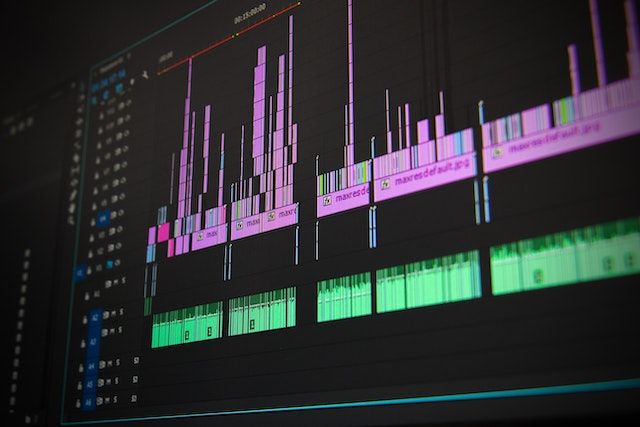How to write a verse: tips and recommendations for musicians
The majority of people will say that the verse is one of a song's most important structural elements.
Verses lay the foundation for the chorus to be relevant, even though the chorus may be the emotional high point of a song and the part that listeners are most likely to hear over and over again long after the song has ended.
Verse progression also increases the meaning of the chorus parts by advancing the story of the song with each new verse. The verse might be regarded as the "utility player" of a song because it has all of these duties and more.
We'll provide you with some songwriting advice and motivation in this article to help you make your verse sections stronger.
What’s the point of using verses?
A push-pull relationship exists between what is dynamic and what is static in a song's form. A listener who is exposed to too much "novelty" finds it difficult to anchor themselves and align to the song. On the other side, when there is too much of the same thing, it becomes monotonous and repetitive.
Because each succeeding verse just slightly alters the previous one, the verse allows artists to move between old and new material. Keeping the melodies and chords the same from verse to verse while changing the lyrics for the next verse is the most typical method. Thus, the verse is a crucial tool for driving any kind of plot along or refining an idea across several iterations.
The choruses that appear in between the verses serve as the song's major anchor because they are more static elements that remain mostly or fully unchanged. When the lyrics and the music that supports them change from verse to verse, we are in the presence of a bridge.
How to write a verse
Although there is no one correct way to create a verse, having a broad draft might occasionally make it simpler for you to begin creating verses on your own. Here is a basic format for writing a first verse that will grab the listener's attention.

Determine the narrative of your song
Finding your message first is one of the best pieces of songwriting advice for crafting a powerful verse, let alone a composition. You can still consider the words you want to use in your song or the basic idea of the music even if it isn't intended to contain a complex emotional arc or tale.
Pick a good starting point
Although every song must begin somewhere, not every song is created in the same way. A great song doesn't always come from a straight process. Ideas may come to you in multiples or none at all, giving off the impression of being without inspiration. However, picking a starting point might be quite beneficial.
Choose a starting point so that you have a clearer idea of where to go next. The next time you write a song, keep in mind that your method can be very different. Trust whatever makes sense at the time, and don't be afraid to try new things.
Don’t stop the flow and keep writing
Allowing yourself to write without limitation at the beginning of the songwriting process is one of the most crucial songwriting advice to remember in order to avoid killing an idea before it even begins.
Let the words flow; you can edit afterwards. After writing the first verse, move on to the second verse, trying to get your unfiltered thoughts as soon as possible.

Use rhymes
Try to go one step further and include some rhymes whenever you have a concept for a line, whether it be melodically or lyrically. Since they are frequently more remembered, rhyme systems in music enable songs to have a better connection with the listener. The structure of your lyrics may need to be altered to meet your rhyming system, but it will be worthwhile.
Be focused on the chorus
As mentioned earlier, song verses serve a purpose beyond simply providing amusement: they set the stage for the entire musical composition. Consider how your verse prepares the audience for the chorus or pre-chorus as a result.
Once you've written a basic framework for the first verse, it could be a good idea to try composing a draft version of the remaining parts of your song.
How do the verse and chorus of your song flow? Does the chorus clarify or provide an answer to a question posed in a verse? To create a song that is both cohesive and appealing, consider the interaction between these two different song parts.
Put your verses into music
On paper, a verse might sound good, but it might not flow naturally with the rest of the song. It is now time to put your song to music and rhythm once you have typed down the rough lyrics for your verses, choruses, and general song structure.

By doing this, you might be able to identify which lines or lyrics should be changed to better fit the song's cadence. To obtain a feel of the tempo, at the very least, sing your verses along with a repeating, in-time chord progression.
Assemble the entire song
It's time to review the entire composition once you've put all of the fundamental components in place. Play your song in its entirety and pay attention to how the verses link to the other sections. Do the verses advance the narrative of your song? Does the song's flow from one section to the next feel smooth? If the answer is yes, you're on the correct track to finish your next song.
Conclusion
The best approach to advance your abilities is to repeatedly practice songwriting after learning how to do it. There is no substitute for practice, and the only way to improve as a songwriter is to write a lot of music.
We hope you enjoyed reading this post, and if you'd want more career-related guidance, on our blog section, there are many more beneficial articles, advice, and recommendations to be found.
You are undoubtedly here because you love music, so please take advantage of the chance to listen to it while interacting with other users via webcams in CalypsoRoom.
Are you a music artist or label and do you want to give your music a further dimension? Do you own or co-own the master and publishing rights to your music? Consider to post it on CalypsoRoom listening to it together with your super fans, at the same time, connected by webcams.
Thanks for reading,
CalypsoRoom Team
back
Written by CalypsoRoom Editorial Team
The CalypsoRoom Editorial Team is a skilled and diverse group of writers, researchers, and industry specialists who have access to Calypso's data and information in order to give you broad knowledge about the music industry as well as helpful advice to help you manage your music and dancing career.
Updated January 2023
Company number: 681223
James's Walk 31, Dublin, Ireland
contact@calypsoroom.com
+353 (89) 435 8928





